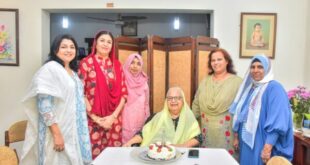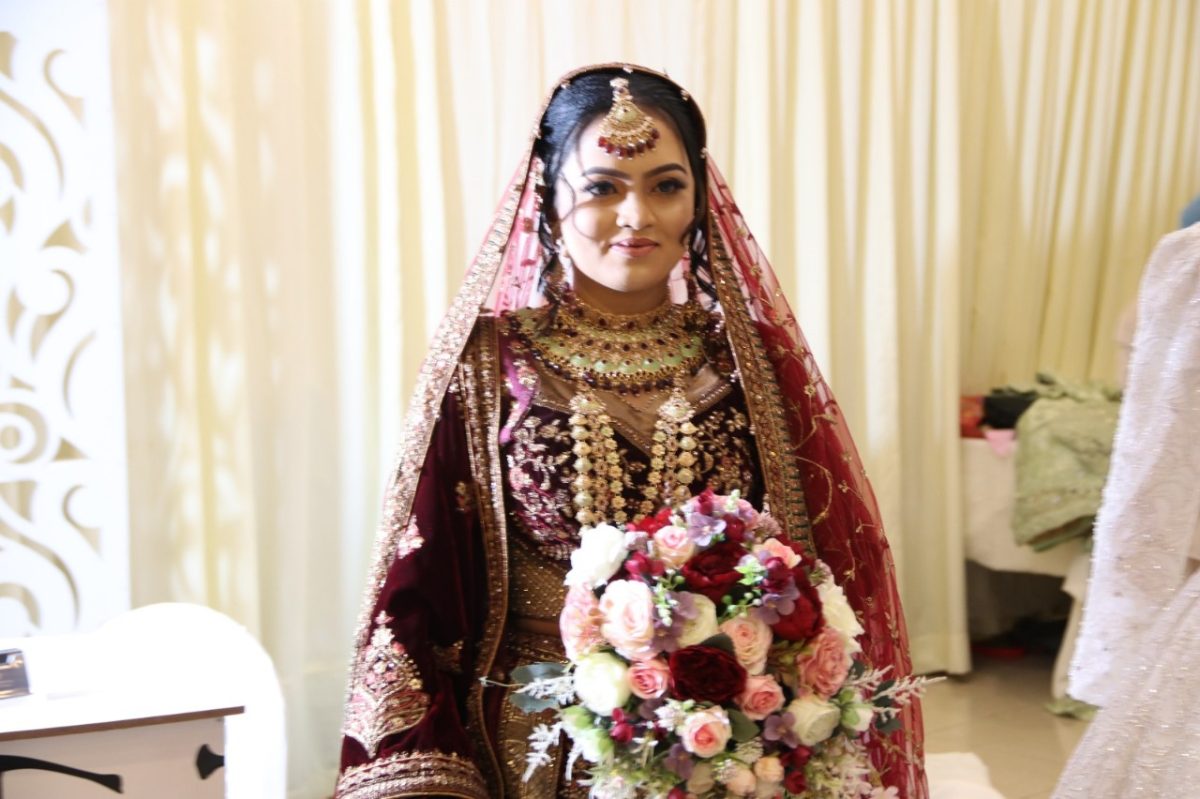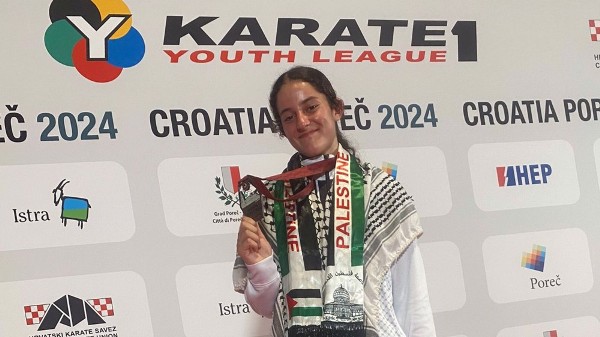
Photograph by: Bruno Schlumberger, The Ottawa Citizen
Sheema Khan was just three years old when she emigrated with her family from India to Montreal. They wanted a country with a good education system, and work opportunities. But mostly, they wanted to leave behind the sectarian violence between Hindus and Muslims in their Calcutta home.
Canada was that land of promise for them. Today, Khan is a patent agent who holds several patents of her own in drug delivery systems. She has a PhD in chemical physics from Harvard, and took a year off to do social work before continuing her studies at Massachusetts Institute of Technology. She is married, the mother of three, and a faithful follower of Islam who started wearing a hijab after much soul-searching. She loves hockey (the Canadiens, of course), and plays soccer once a week with a women’s team near her home in Kanata.
Most recently, however, she has become a public advocate for Muslims in Canada, particularly women, who find their rights and points of view not always heard.
Toronto publisher TSAR has just published her book of essays, Of Hockey and Hijab: Reflections of a Canadian Muslim Woman. It is evident that the 50-plus essays started as newspaper columns. Each is very short, and tied to daily news: terrorism, sharia law, the balance of rights between people of faith and those who do not want any signs of religion in the public square.
A few are more personal, such as the piece about playing hockey as a young woman, and “storming the Harvard bastion” where women were less than welcome, especially in the hard sciences, such as chemistry. It is interesting that Khan herself finds these two her favourites.
The essays are grouped into five categories: extremists’ highjacking of Islam, the rights of women, Islam on the international scene, and two aspects of Islam in Canada: how other Canadians see Muslims and what Muslims want and expect from their country.
Khan introduces her subjects by using a personal detail as a point of departure, then widening the lens to the national or international scene. In “No Veiled Threat,” she says: “At Harvard, after much spiritual reflection, I donned the hijab and also tried the niqab (covering the whole body and face) — for all of one hour. I found it stifling and unnatural. Yet others don’t.” She then goes on to talk about the political impact of the new WMD (women in Muslim dress). Many of those personal details were tantalizing invitations to ask Khan more about her book, her life, and her plans:
How do you think Canadian Muslims view the threat of terrorism?
The community is in denial — we have to recognize that. I was reading court documents. People have lied through their teeth. It’s not always “poor, innocent, truthful Muslim” against “big bad state.”
Of course, there are egregious cases of human rights violations, such as those of Maher Arar, Abdullah Almalki, Ahmad Maati, and Muayyed Nureddin, amongst others.
But we are projecting an image we are too concerned about the rights of Muslims, and it seems that we don’t care enough about the safety of the wider society. It’s not a balanced approach. A balance between civil liberties and security is in the best interest of all.
What should Muslims do to change things?
In some recent U.S. cases, the parents notified the authorities when they suspected their children were involved with terrorism. Here in Canada, we must be more forceful with the message that terrorism is wrong. There is no cause that justifies the killing of innocent civilians. We should consider organizing marches and protests against terrorism.
What are your main concerns these days?
I’m interested in women’s issues now more than ever. In my work with CAIR-CAN (Council for American-Islamic Relations Canada), we’d get word of things happening within the community, especially with regards to women. I’d say, “Wait a second, why are we ignoring this?” That to me is the Number One issue.
You are not going to have a whole community if you treat half of them with disdain. To me, it goes back to a view that is prevalent in some Muslim cultures, namely an essential view of women (as emotional and foolish). Muslims can yell injustice, and oppression, but if you don’t take care of your own properly …
Has writing your columns affected your own outlook?
It has changed, maybe not 180 degrees, but 90 degrees. On sharia arbitration, my initial point of view was to try to be fair all the way around. Other communities had availed themselves of faith-based arbitration, why not Muslims? Also, we had asked for changes to the Arbitration Act to make the arbitration process more transparent and accountable. We had asked for oversight so that arbitration decisions conformed to the Charter. But then when you talk to people in the community, you realize that sharia means different things to different people. It’s like a Rorschach blot, everybody has his or her own idea of what it is. Looking back now, I don’t think there’s any way classical sharia can ever be part of the western secular system. It has to be reformed to fit in.
Gender equality is the Number One point of contention. The way of thinking that pervades within the community now is that women have an essential character that they are emotional, that once a month they are just basket cases, that is: “Weakness, thy name is woman.” I find that’s the view that is at the centre of classical sharia law. It’s not a view I would want to permeate here.
Canadian women have fought really hard to get where they’re at, and they are not going to stand for anything that rolls it back. And I think that this is something that the Muslim community is totally oblivious to. They are totally unaware of the women’s movement. So I think gender equality is going to be the line in the sand, so to speak.
What do you think will be the next challenges for the Muslim community?
There are two other areas Muslims have to adjust. The education systems in many home countries don’t encourage critical inquiry, here it’s not like that … so you get a lot of conflicts between kids and their parents, especially in the area of rules. Secondly, there is also tension between family/cultural loyalty and more of the second and third generation moving towards individualism.
You stepped out into the unexpected, didn’t you?
Yes, I took a year off between Harvard and MIT to do social work. My parents were, like, “what?” They thought I was throwing away a career. But it was for my own soul, I spent so many years cloistered away in ivory towers, with equations and computers — there is a whole world out there, it’s not just reading books. I worked in a women’s shelter in Montreal, and the cancer ward at (Montreal’s) Royal Victoria Hospital, visiting patients who had no family.
On the Day of Judgment, God will ask, “When you were on Earth why did you not visit me? Why did you not feed me?” That really made an impression. I was searching for that essence (of God) and I found it.
Which mosque do you go to?
I only go to Friday prayer once in a while. I pray on my own. (At her local mosque in Kanata), I remember the imam saying, “just because you have a PhD from Harvard, it doesn’t mean you are qualified to speak to the media” — it was a veiled remark directed at me.
How do you handle the pressures of work, children, writing, and practising your faith?
I discovered the key. I make sure I exercise, eat right, do my prayers. I’m never conflicted, because I know inside what my priorities are: my family and work. I play women’s soccer every week, and it’s fantastic. It’s one hour where you don’t worry, you just have fun. Those moments to yourself are very important.
What would you like to tackle next in your writing?
Being a believer and a scientist — I would like to be part of the public discourse on that. I told my publisher I already know the title of my next book, The Audacity to Believe. Belief is such a touchy subject, especially for those who don’t believe in God. Surprisingly, I have found a few hardcore scientists who become so emotional when the topic of God comes up. It touches a nerve.
Yet I remember the following story in the Koran: Abraham is looking at the moon and stars and sun and then he arrives at faith and God by what I call deductive reasoning. (The world and its processes are) not just by chance. It’s so incredible. But some people don’t see it that way. I look at the two of the most influential scientists we have, Newton and Darwin, and if you read the original writings, these were men who believed in God. Physicists and evolutionary biologists just think we’re all deluded, and yet those two scientists are heroes.
What has your own spiritual journey been?
It’s evolving. It’s broadening. When you are young, things look more black and white. As you grow, you see how diverse and nuanced things are. And I now see more spirituality in others as well.
Do you foresee a day when you might not be Muslim?
God knows. The faith itself provides me with tremendous happiness and the fortitude to deal with daily challenges.
Post Disclaimer | Support Us
Support Us
The sailanmuslim.com web site entirely supported by individual donors and well wishers. If you regularly visit this site and wish to show your appreciation, or if you wish to see further development of sailanmuslim.com, please donate us
IMPORTANT : All content hosted on sailanmuslim.com is solely for non-commercial purposes and with the permission of original copyright holders. Any other use of the hosted content, such as for financial gain, requires express approval from the copyright owners.
 Sri lanka Muslims Web Portal Sri Lanka Muslims News Center
Sri lanka Muslims Web Portal Sri Lanka Muslims News Center
 Donate
Donate


